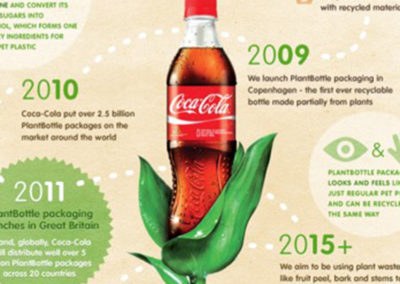Ethical leadership and corporate responsibility
When everyday life seems precarious and unpredictable, people cling to the certainties in life and work delivers structure, purpose and vital incomes. Effective leadership is an important factor to help support this at all levels.
Your employees may need tailored support to deal with a range of concerns – from mental health difficulties exacerbated or prompted by the pandemic and anxieties about existing conditions that could make them vulnerable to COVID-19 – to the challenges of juggling home schooling with working remotely and uncertainty about their jobs. Your business will therefore need to adapt to novel demands on its operations, communications and HR management. Responsible leadership will enable this to be developed and delivered across your organisation.
Imperial is at the forefront of academic research into the impact of ethical leadership and how it can help your company be more agile and productive:
- The positive impact compassionate leadership can have on your company’s effectiveness and competitiveness
- Advice on agile leadership techniques as your senior executives navigate the commercial and HR challenges that the pandemic has presented to individual employees and your company as a whole
- Analysis of the economic and psychological impact of lockdown and the longterm consequences of the pandemic for businesses and their employees
- How to maintain clarity in your communications with your employees about the possible implications of the pandemic on their jobs and the future of your organisation
- Advice on how senior management can lead effectively and supportively during a crisis
The Centre for Responsible Leadership
In collaboration with Citi, Imperial Business School launched the Centre for Responsible Leadership in July 2020, to help organisations improve their approach to leadership and boost overall performance as a result, drawing on evidence-based research that addresses the key economic, social, environmental and technological challenges facing organisations today. Themes include:
- excellence in leadership – exploring how to change the culture of an organisation and support its transition to new models of leadership
- disruptive technologies – when the potential of new technologies is undermined by the socio-economic context
- public realm – when safeguarding the public good collides with privacy rights and private incentives
- business decisions – when ethically sound choices collide with shareholder interests
Read more about the launch of the Centre for Responsible Leadership .
The economic context for new leadership methods
The ONS published a report on the impact of COVID-19 on the UK economy in July 2020. According to official statistics, the number of workers on UK payrolls fell by 649,000 between March and June this year and since the start of the pandemic, total hours worked per week (in the UK) has fallen by a record 175.3 million, or 16.7%, to 877.1 million hours. At the time the findings came out, 2.6 million people were claiming work-related benefits, which includes the registered unemployed and those whose earnings were deemed insufficient to meet basic living costs by the DWP.
In the same month, a British Chambers of Commerce survey revealed that 29% of the 7,400 companies asked thought it likely they would cut jobs in the next three months as the furlough scheme closes at the end of October. The government’s ‘Coronavirus Job Retention Scheme’ is now closed to new applications, but 9.4 million UK workers have been furloughed since the pandemic started [the scheme runs in three-week cycles, so some will have returned to work with the recent relaxations in social distancing] – and, from 1 August, employers will have to contribute towards furloughed employees’ salaries. From 1 July, employers have been permitted to bring staff back part-time and are responsible for paying them for any hours worked, whilst the government continues to subsidise the pay for the time they are not working through the furlough scheme.
On 8 July, Chancellor Rishi Sunak’s statement to parliament included further steps to address the financial crisis caused by the COVID-19 pandemic which included incentives for employers to hire young people on apprenticeships and to retain employees currently on furlough until January 2021. Some commentators argue that support should be targeted towards certain sectors of the economy – and that some individuals have not been able to access government support to help compensate them for the strain the pandemic has put on their personal finances and businesses.
Imperial’s academics can help you decide how best to support your employees and ensure that your company is optimising its social and sustainability policies.
Nelson Phillips of Imperial College Business School speaks to Authority Magazine (read in full)
What advice would you give to CEOs and business leaders to help their employees to thrive and avoid burnout?
First, I think employees are less prone to burnout and more likely to thrive when they feel like they play an important role in the organization and when they have a sense of the purpose of the organization that can give their work meaning.
Second, it is also about building a culture where the importance of a balance between work and life is respected and where health and wellbeing of everyone is a key organizational goal. This means not rewarding overwork, not expecting continuous heroic effort, and not glorifying workaholism. It also means not being a workaholic oneself. While the seductive nature of an ethic of overwork is undeniable in the corporate world, it is not sustainable or ethical.
How do you define “Leadership”?
For me, leadership is about influencing others towards shared goals. Leadership is not, therefore, necessarily about formal position or being recognized as a leader. But it is always about creating movement and change in a direction that if positive for organization and its members.
Satya Nadella at Microsoft is one of my favorite leaders right now. He has created huge change at Microsoft taking an enormous company in a new direction while also making organizational members feel excited, empowered and like they are critically important to the success of the company. This is really the true measure of a leader: a person who can create positive change and bring people along in a way that makes them feel empowered and involved. Or even better, that the change was their idea in the first place!
How can you give constructive criticism to a remote employee?
Feedback over email is tricky as positive feedback can sound like sarcasm and negative feedback can easily sound to harsh. So, try to avoid giving feedback by email if at all possible. This is particularly true if you do not have a positive, trusting relationship with the person you are giving feedback. If you have no choice but to provide feedback by email, make sure to keep things simple, direct and provide concrete examples wherever possible. It will also be necessary to be more directive in terms of what they should do differently when giving negative feedback than I would usually suggest being. As it isn’t a conversation, it needs to be a clear evaluation of performance and suggestions for improvement.
-
Use concrete examples and avoid generalizations. Don’t say “you always” or “you never” as the person only has to think of one counterexample to be able to reject your feedback as inaccurate
-
Talk about what happened and the consequences that you are aware of (“when you interrupt Mary repeatedly she stops contributing”).
-
Do not assume you know why someone did something. Don’t talk about motivations or what was happening inside their head. Don’t say “you don’t care about Mary’s input” or “you are doing this to irritate me”. You don’t know that.
-
Focus on one issue per email. Don’t overload the person with negative feedback but keep your email focused and balanced.
-
If you can, attach a video where you explain what is in your email. A video provides much more richness and clarity.
Read more from Imperial’s experts…
Professor Celia Moore writes for Forbes about the windfalls of compassionate leadership
Ethical leaders need to be sought out. It takes courage to prioritise ethics over what can seem like quick wins – but the rewards can be huge for your organisation.
Imperial’s Business School opens Centre for Responsible Leadership
The new centre based at Imperial’s world-leading Business School aims to redefine our approach to leadership
Impact of COVID-19 on our daily lives and the economy
Imperial’s Business School is contributing its thought leadership to the unprecedented economic and financial implications of the pandemic.
Are Ethical Leaders Good for Business?
Organisations desperately need leaders who are willing to make decisions for the greater good. Safeguarding the wellbeing of your employees and clients is not only the ethical option – it also makes business sense.
Solidarity vs. selfishness
What can the pandemic teach us about human behaviour and business? Our analysis of different approaches to dealing with the challenges of COVID-19 offer interesting learning opportunities for business leaders.
The art of the pivot
Pivoting occurs when a company makes a fundamental change to its business after determining its product isn’t meeting the needs of its intended market. Many businesses have had to adapt their business models quickly in order to survive.
Data science for social good
2020’s technologies including data science, big data, Artificial Intelligence, augmented and virtual reality have an immense capacity for optimising social benefits, but the full potential of these innovations may not have been fully realised yet.
Sustainable development and social responsibility
Promoting sustainable business growth is essential for the long-term health of our society and economy. Imperial’s research specialises in identifying innovative strategic, technological and psychosocial techniques which have the potential to improve your organisation’s operations, public profile and robustness.
Is your CEO right for the job?
A survey of over 1,000 CEOs has revealed how the most successful business people spend their day, but traditional metrics of high performance may not necessarily identify the most holistically effective leaders.
Who to contact:

Jamie Pombeiro de Sousa
Engagement Manager
For Materials, Manufacturing, Mechanical Engineering, Computing, Cyber Security, Data Science and AI






